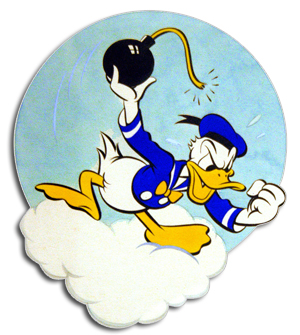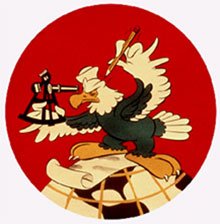Ender's Game is one of those books that I always intended to read, but have never quite managed to actually bring myself to do so. I knew that it was supposed to be quite good. One of my author sisters speaks well of it. I knew that it is considered a classic in the Science Fiction genre. I have actually tried a number of times before now, to read it, but have always given up after the first few chapters. However,
Ender's Game is being made into a movie - a movie which is
being boycotted because it's author is a staunch proponent of traditional marriage, so this seemed like a good time to give the book another chance, and I managed to get all the way through with it this time, though it was a struggle at first, and the first few chapters are every bit as dreary as I remember them being.
To be fair, I am a pretty hard-sell when it comes to Science Fiction. It is not a genre I feel naturally at home with. It seems a bit sterile to me - the Stars stripped of their magic and mystery, Earth too tame, its creatures too ordinary, so that we have to have alien worlds and alien creatures to replace all the natural
mythos that the power and glory of our own home planet once inspired. For all of that, I have read some Science Fiction and enjoyed it. I have a rather soft spot for the original
Star Trek. So there was more to my trouble with
Ender's Game than a mere dislike of the genre. It was the fact that, for those first few chapters, I cannot connect with the characters or the setting. Indeed, I heartily detested everything about story. I hated the vision of Earth, in the midst one of those oppressive times of peace that seem to show up uncommonly often in futuristic fiction, with population control firmly in place, and the Powers That Be able to implant the population with feeds that allow for remote observation of behaviour. I can't help feeling that if
this is the price we have to pay for peace on earth, we'd all be better off with war. And... I actually hated all the characters too, including Ender himself, which seems a terrible thing to say, as he is just a six year old child at the story's commencement, and an unfortunate one too, with a scary older brother tormenting him at home, and a group of bullies hounding him at school, until he is forced to defend himself from them. But Ender is introduced so dispassionately. He is too intelligent for his own good. He doesn't act like a child. He barely acts human. There is something just a bit too cold and calculating about wee Ender Wiggins.
There is something just a bit too calculating about the whole Wiggins family, actually. Mr. and Mrs. Wiggins have turned their backs on their religious backgrounds, conforming outwardly with the secular requirements of their society, but they play both sides, by baptising their children, and giving them saint's names. Peter, the oldest child, a bully and psychopath, knows just how far to push his younger sister and brother, and always stops his games before they are driven to tell on him, or the adults catch on to his behaviour. Even Valentine, Ender's sister and protector in those early days, knows just how to manipulate Peter's cruelty and egoism, to keep him in check. And then, there are the enigmatic characters who have been keeping an eye on Ender - Graff and Anderson, who exist, at first, as mere conversation on the peripheral of the narrative, vague and faceless. Between the bleak vision of the future, and the loveless family life of the Wiggins, and the disconcerting presence of those two voices, I nearly gave up on
Ender's Game this time around, as I have always done before - and at just about the same place as usual. But I had made my mind up to read the thing, so I stuck to it, and got through those early dismal bits and into the heart of the story. Gradually, I lost my impatience and dislike. Once I accepted the story on its own terms, it sucked me in completely, and I devoured it. The ending came when I was not expecting it too, a powerful ending, that nearly made me cry. I closed the book, surprised by how much I had liked it after all.
The plot of
Ender's Game is quite simple. Some years before the story begins, the Earth was attacked by an army of aliens. After a horrific battle, the aliens were defeated, but the Earth is still recovering from the attack, and is in immanent danger of another invasion. In order to train top-notch fighters, the Battle School is set up, and promising young children are recruited for rigourous training as elite soldiers. Ender is the most promising of these students, and from the start, he is singled out for the closest observation, the harshest and most extreme training. He rises to each challenge, and grows believably into a great tactician and leader. Summed up like that,
Ender's Game sounds boringly predictable: poor but talented boy, lifted from obscurity, to become the hero upon whom the survival of the planet depends. And yet, the way the story is told, seriously, thoughtfully, and with a moral back-bone, raises it above banality.
The pacing of the book is very deliberate, and the action is largely restricted to the final chapters. However, the descriptions of tactics and strategy are fascinating, the war games which are used for training, are exciting. There is a high level of tension running through the whole narrative, which manages to keep the reader on the edge of the seat, even when there is not much of anything actually happening. Character development is masterful. A cold and calculating Ender Wiggins in Battle School, is somehow more human and sympathetic than the same character was at home. If he he grows believably into a superior soldier, he does so with a solidly moral center, which prevents him from ever becoming heartless. He retains a sort of simplicity and a desire to love, even as he does what he has to do as a soldier and a commander of soldiers, with the result that he grows more sympathetic as the story progresses. The enigmatic Graff emerges as a complex character, an old soldier who has spent his life fighting in defense of his home; the one who recruited Ender, who pushed him to the very edge of his strength, so that he could be the hero the world needed when the time came; who was stern and implacable to the boy's face, but who loved him and deplored the bitter necessity that had driven them to such measures. He understands Ender. No doubt, he was very like Ender was when he was young himself. He knows how far to push the boy, and when to stop, and he hates doing what he is doing to him. He is conflicted, but he is, at heart, a good man, who really just wants to be able to go home in peace. Both Ender and Graff grew on me, so that I was fond of both of them by the end of the book, but I think, if I had to choose a favourite, I'd have to go with Graff. I have a soft spot for old soldiers.
The ending took me entirely by surprise. Perhaps it shouldn't have. Once I finished reading, it seemed so obvious and logical, that it simply couldn't have ended any other way. But the flow of the story is so carefully paced, the object of all that battle training so desperately focused, that when everything falls into place, it comes as something of a shock. It is a very good ending, though not exactly a happy one. Would I recommend this book? Yes, definitely. It is extremely well written and well worth the effort. It gives thoughtful treatment to the themes of sacrifice and honour, duty and moral courage. If the tone is somber, there is also hope to it, and it is satisfying. Perhaps I just happened to pick the right time to read it, but it was rather good for me to read it, and I am glad that I did.








